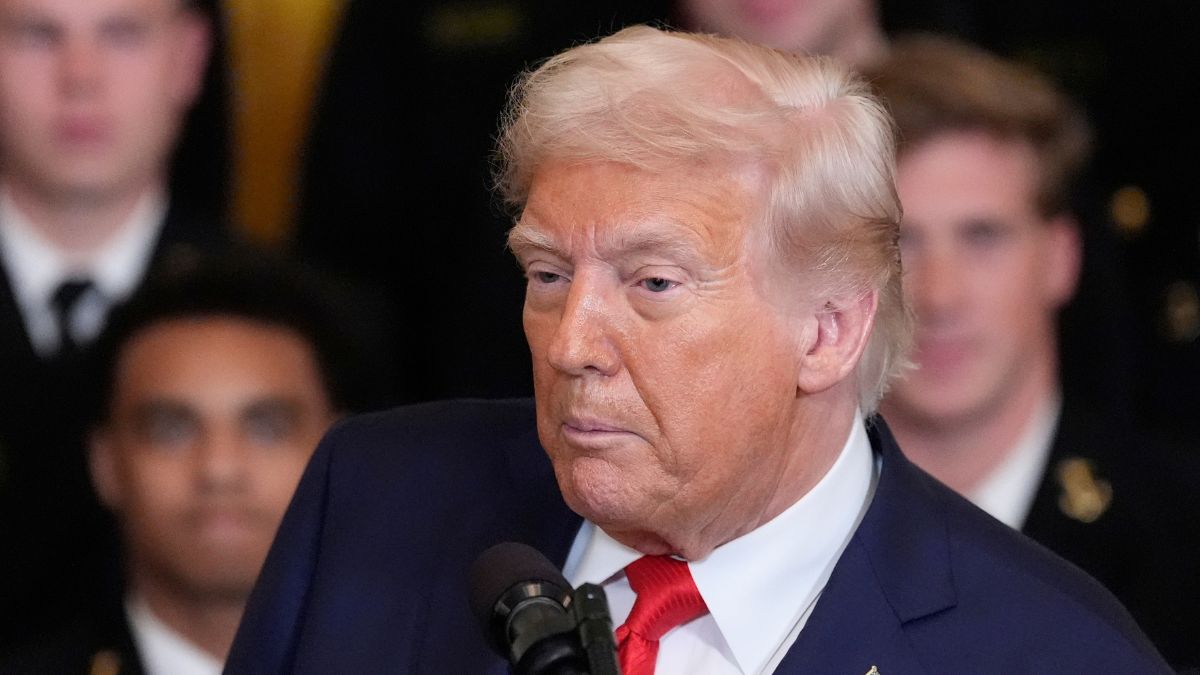United States District Judge James Boasberg has threatened to hold Trump administration officials in criminal contempt for allegedly ignoring a court order that barred the deportation of Venezuelan migrants under the Alien Enemies Act of 1798.
The administration had cited the centuries-old law to justify flying hundreds of Venezuelans — many accused of being members of the gang Tren de Aragua — to a high-security prison in El Salvador.
“The Court ultimately determines that the Government’s actions on that day demonstrate a willful disregard for its Order, sufficient for the Court to conclude that probable cause exists to find the Government in criminal contempt,” Boasberg wrote in a detailed 46-page ruling.
“The court does not reach such conclusions lightly or hastily,” Boasberg wrote. “Indeed, it has given defendants ample opportunity to explain their actions. None of their responses has been satisfactory.”
The judge’s sharp rebuke comes after federal authorities failed to comply with both a verbal and subsequent written order to halt deportation flights, with Boasberg stating the government had “deliberately flouted” the directive.
In response, the White House has denied any wrongdoing and announced plans to appeal. “The President is 100 per cent committed to ensuring that terrorists and criminal illegal migrants are no longer a threat to Americans and their communities across the country,” said Trump communications director Steven Cheung.
What is the controversy around the Alien Enemies Act
At the heart of the dispute is the administration’s use of the Alien Enemies Act — an 18th-century wartime statute — to justify deportations.
Dozens of Venezuelan men, accused by US officials of gang affiliations, were transferred to El Salvador’s notorious CECOT prison .
However, an analysis by CBS News’ “60 Minutes” revealed that 75 per cent of the deportees had no criminal records.
About 22 per cent had records for largely non-violent offences such as theft and trespassing, while only a handful were linked to serious crimes like assault or murder.
The deportations prompted legal challenges, with some migrants seeking to stop their removal. In a March 15 emergency hearing, Boasberg instructed government lawyers that any ongoing deportation flights should be turned around.
Nevertheless, nearly 140 migrants were transported out of the country.
What happens when court orders are violated?
Under federal law, criminal contempt refers to knowingly defying a lawful court order. “In my experience as a lawyer over the last 30 years, even the hint of being held in contempt by a judge is ordinarily enough in order to cause litigants to correct their behaviour,” Mitchell Epner, a partner at Kudman Trachten Aloe Posner, told CBS News.
Boasberg has provided the administration a final opportunity to “purge” its alleged contempt by taking the migrants back into US custody and filing a plan of action within one week.
Failing that, he may demand names of officials responsible for the deportations, hold sworn depositions, or conduct live hearings.
Boasberg also noted he could recommend criminal charges — although the Department of Justice, under Trump, is unlikely to pursue prosecution of its own officials.
If DOJ refuses, Boasberg may exercise a rarely used provision of federal law to appoint a private attorney to prosecute the contempt case.
This route, however, could ignite a constitutional clash between the judicial and executive branches. “Actually trying to prosecute a criminal contempt here would be a mess,” said Epner. “It is literally setting up a constitutional crisis.”
What’s next?
Judge Boasberg is not alone. In a separate case, Judge Paula Xinis in Maryland has also raised the prospect of contempt after the administration failed to comply with a Supreme Court mandate to return Kilmar Abrego Garcia, a Salvadoran mistakenly deported .
“There will be no tolerance for gamesmanship or grandstanding,” she said during a hearing.
Meanwhile, the Supreme Court has already weighed in — overturning Boasberg’s initial ruling on procedural grounds. The justices held that deportation challenges must be filed where migrants are detained, which, in this case, was Texas — not Washington.
Still, Boasberg insists that violation of a court order remains actionable, regardless of whether the order was later reversed. “It is a foundational legal precept that every judicial order ‘must be obeyed’ — no matter how ‘erroneous’ it ‘may be’ — until a court reverses it.”
On the night following Boasberg’s latest ruling, attorneys for the Venezuelan migrants moved to expand their case, seeking retroactive relief and requesting that all individuals facing potential deportation under the Alien Enemies Act be granted 30 days’ notice to contest removal.
Lee Gelernt, the ACLU’s lead attorney, supported the judge’s hard stance. “Judge Boasberg is correctly focused on the return of individuals sent to a brutal Salvadoran prison without any process whatsoever, and that also remains our concern,” he said.
With inputs from agencies


)

)
)
)
)
)
)
)
)



